Sweating pipes in the basement can cause a number of issues, from water damage to mold growth. It is important to address this issue as soon as possible to prevent any potential health hazards and costly repairs. In this guide, we will discuss why it is crucial to learn stopped sweating pipes in the basement.
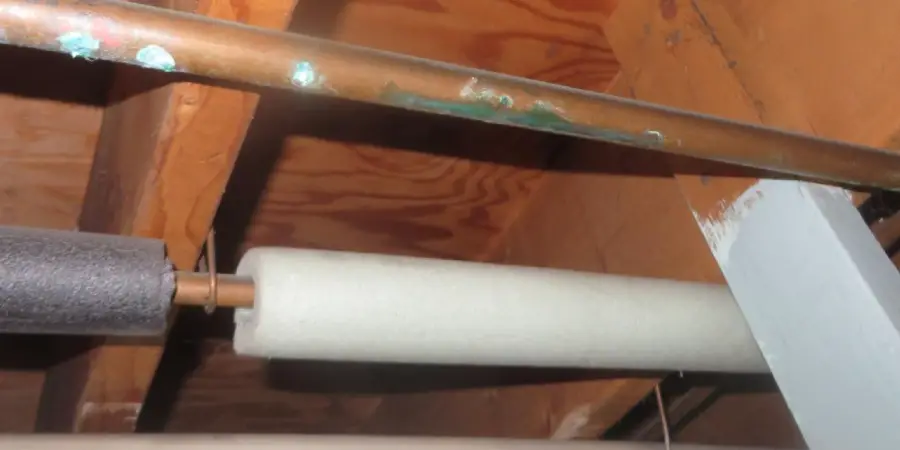
The main advantage of stopping sweating pipes in the basement is that it can prevent potential damage to your home and save you money on repairs. When pipes sweat, they can cause moisture buildup, which can lead to mold growth and even structural damage if left unchecked. By learning how to stop this issue, you can protect your home from these potential risks. Read this blog post to learn how to stop sweating pipes in the basement.
Step-by-step Instructions for How to Stop Sweating Pipes in the Basement
Step 1: Inspect the Pipes
Check to see if there are any visible leaks or cracks in the pipes. If so, these will need to be repaired before addressing the sweating issue. If there is no visible damage, use a mild detergent and warm water to clean the pipes. This will help remove any dirt or grime that may be contributing to excess moisture.
Step 2: Insulate the Pipes
Insulating the pipes is a key step in stopping sweating. You can purchase pre-cut foam insulation sleeves or wrap them with self-adhesive foam tape. Be sure to cover all exposed areas of the pipe, including any bends or joints.
Step 3: Use a Dehumidifier
If your basement has high humidity levels, it can contribute to pipe sweating. Consider using a dehumidifier to reduce the moisture in the air and help prevent pipes from sweating. Proper ventilation is important for controlling humidity levels in basements. Make sure your basement has adequate ventilation, either through windows or a venting system.
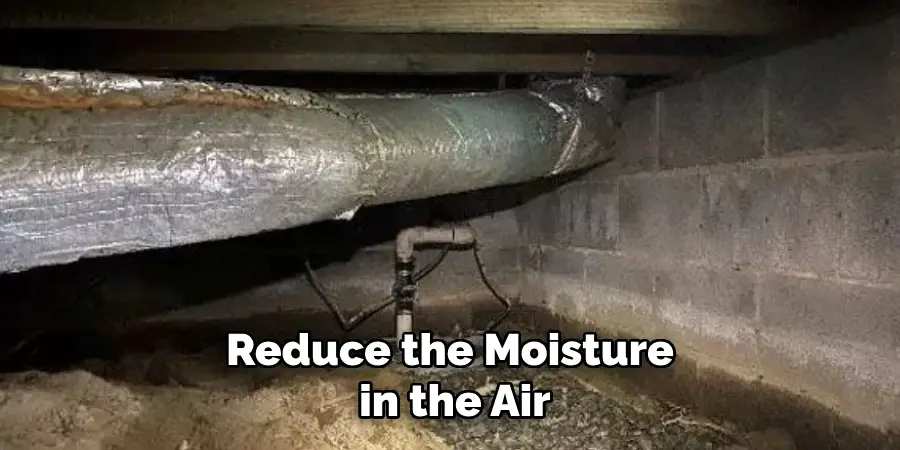
Step 4: Check Your Water Heater
If your water heater is located in the basement, it could be contributing to pipe sweating. Make sure it is properly insulated and consider adding a thermal blanket for extra insulation. Using a fan in the basement can help circulate air and prevent stagnant pockets of moisture from forming, which can contribute to pipe sweating.
Step 5: Fix Any Plumbing Issues
Leaking pipes or fixtures can contribute to excess moisture in the basement. Make sure all plumbing issues are fixed promptly to prevent further sweating. Check for any cracks or gaps in the walls and floors of your basement, as these can allow moisture to seep in. Use caulk or sealant to seal these areas and prevent excess moisture.
Step 6: Properly Drain Condensation
If you have a central air conditioning system, make sure the condensation drain line is functioning properly. If it is clogged or not draining properly, it can contribute to excess moisture in the basement. Invest in a hygrometer to monitor the humidity levels in your basement. Ideally, they should be between 30-50%. If it goes above this range, take steps to reduce humidity.
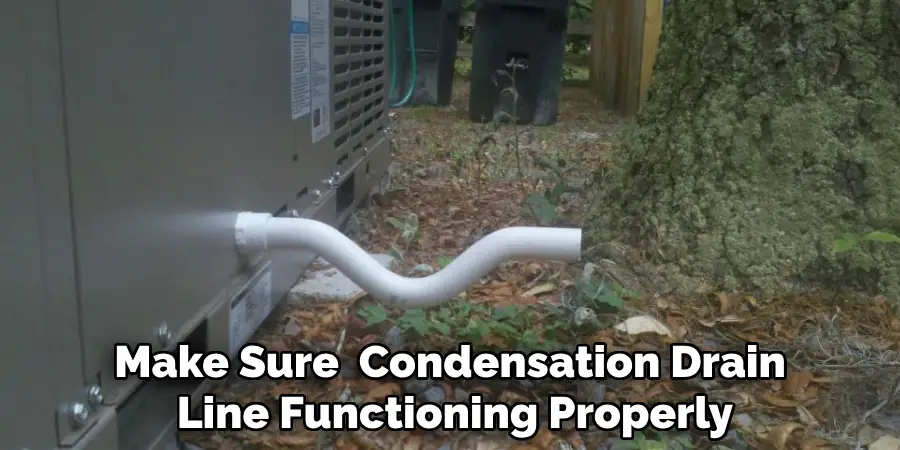
Step 7: Consult a Professional
If you have tried all of these steps and are still experiencing excessive pipe sweating, consult a professional plumber or contractor for further advice and solutions specific to your home. They may also be able to identify any underlying issues that may be causing the sweating.
By following these steps, you can effectively stop sweating pipes in your basement and prevent potential damage to your home. Remember to regularly check and maintain your pipes and address any issues promptly to avoid future problems.
Safety Precautions for How to Stop Sweating Pipes in the Basement
- Before attempting any repairs on sweating pipes in your basement, it is crucial to turn off the water supply to prevent any accidents or further damage.
- When working with pipes, it is important to protect yourself from potential hazards. Wear safety goggles, gloves, and a mask if necessary.
- Ensure that the area around the pipes is well-ventilated to avoid inhaling any harmful fumes.
- Use proper tools and techniques when working with pipes to prevent injuries or damages to the pipes themselves.
- If you are not confident in your ability to fix sweating pipes, it is always best to call a professional plumber for assistance.
- Regularly check and maintain your pipes to prevent sweating and potential water damage in the future.
- If you notice any signs of corrosion or rust on your pipes, it is important to address them immediately to prevent further damage.
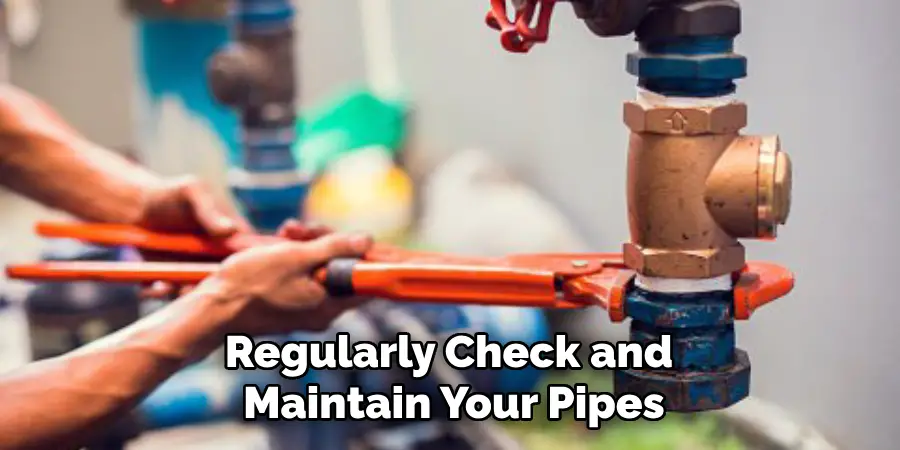
By following these safety precautions, you can effectively learn how to stop sweating pipes in your basement and ensure the safety of yourself and your home. Remember to always prioritize caution and seek professional help if needed.
Are There Any Health Risks Associated With Sweating Pipes in the Basement?
Sweating pipes in the basement can be a common issue for many homeowners. This occurs when warm, humid air comes into contact with cool water pipes, causing condensation to form on their surfaces. While this may seem like a minor annoyance, it can actually lead to bigger problems if not addressed properly.
1. Pipe Corrosion
Excess moisture from sweating pipes can lead to corrosion, especially if left untreated for extended periods of time. The constant contact with water can cause the pipes to rust and weaken, potentially resulting in leaks or burst pipes.
2. Mold Growth
The damp environment created by sweating pipes is also a breeding ground for mold and mildew. This not only causes unpleasant odors, but it can also be a health risk for those with allergies or respiratory issues.
3. Structural Damage
If the moisture from sweating pipes seeps into the walls or flooring of your basement, it can cause damage over time. This could lead to costly repairs and potentially compromise the structural integrity of your home.
By taking the necessary steps to stop pipes from sweating in your basement, you can prevent these potential health and safety hazards.
Are There Any DIY Solutions for Stopping Sweating Pipes in the Basement?
There are a few simple and cost-effective solutions that homeowners can try to stop pipes from sweating in their basement. These include:
1. Insulating the Pipes
One of the most effective ways to prevent condensation on pipes is by insulating them. This will help keep the warm, humid air from coming into contact with the cool surfaces of the pipes.
2. Installing a Dehumidifier
If your basement is prone to high levels of humidity, installing a dehumidifier can help reduce the overall moisture in the air. This will also decrease the likelihood of sweating pipes.
3. Checking for Leaks
Sometimes, sweating pipes may be caused by small leaks or cracks in the pipes themselves. Make sure to regularly check for any signs of leaks and address them promptly to prevent excess moisture buildup.
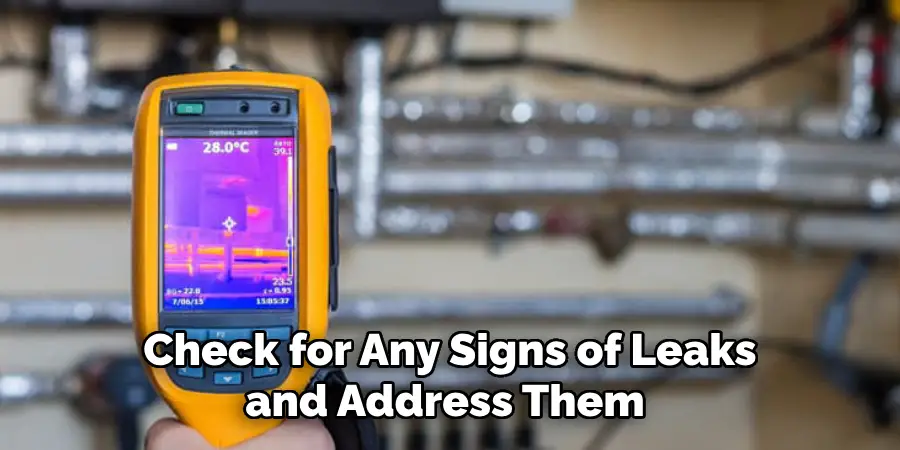
Are There Any Specific Maintenance Tasks You Can Perform to Prevent Pipes From Sweating in the Basement?
There are several maintenance tasks that you can perform to prevent pipes from sweating in the basement. These preventive measures can help save you both time and money by avoiding potential water damage or expensive repairs.
1. Insulate Pipes
One of the most effective ways to prevent sweating pipes in the basement is by insulating them. This helps to keep the temperature of the pipes stable and prevents condensation from forming.
2. Fix Any Leaks
Leaky pipes can contribute to excess moisture in the basement, which can lead to sweating pipes. Regularly check for and fix any leaks in your basement pipes.
3. Increase Ventilation
Proper ventilation in the basement can help reduce humidity levels, which in turn can prevent sweating pipes. Consider installing a dehumidifier or improving air circulation in the basement.
4. Regulate Temperature
Fluctuations in temperature between hot and cold water can cause pipes to sweat. Try to regulate the water temperature by insulating hot water pipes and keeping the thermostat at a consistent temperature.
5. Check for Clogs
Clogged pipes can lead to excess moisture buildup, which can contribute to sweating pipes. Regularly check and clear any clogs in your basement pipes.
6. Monitor Humidity Levels
Keeping track of the humidity levels in your basement can help you identify potential issues before they become major problems. If the humidity levels are consistently high, consider investing in a dehumidifier.
By taking these preventive measures, you can effectively stop pipes from sweating in your basement and avoid any potential damage or costly repairs. Remember to regularly check and maintain your basement pipes to ensure they are functioning properly.
Conclusion
In conclusion, it is essential to know how to stop sweating pipes in the basement to prevent any potential damage and maintain the integrity of your home. By understanding the causes of sweating pipes, you can take preventive measures and ensure that your basement remains dry.
One of the most effective ways to stop sweating pipes in the basement is by insulating them properly. This will help regulate the temperature inside the pipes and prevent condensation from forming.
Regularly checking for leaks and fixing them promptly can also help prevent sweating pipes. This includes inspecting all plumbing fixtures and ensuring that they are properly connected and sealed. Taking these small steps can save you from potential water damage and expensive repairs in the long run.
I hope this article has been beneficial for learning how to stop sweating pipes in the basement. Make Sure the precautionary measures are followed chronologically.

